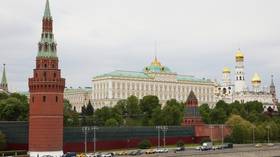Ukrainian agriculture will need two decades to recover – report

Agricultural production in Ukraine may not return to pre-conflict levels until 2050, the Center for Food and Land Use Research at the Kiev School of Economics estimated in its Agricultural Outlook this week.
According to its calculations, the conflict with Russia has cost the Ukrainian farming sector $9 billion, or more than 26% of its tangible assets, as of April 2023.
Prior to the conflict, in 2021, around 33 million hectares were being used to cultivate grains and oilseeds. Last year, this had shrunk to around 25 million hectares, and a further drop is expected unless the conflict ends.
According to a model based on the assumption that the conflict will end before the sowing of winter crops this year, pre-crisis acreage levels are forecast to be partially restored by 2030, and reach 37 million hectares in 2050.
Data shows, however, that the country will need around 20 years to restore its production and exports. For instance, the cultivation of sunflower, barley and wheat is forecast to be restored by 2040, while maize, rye, oats and rapeseed output will return to pre-crisis levels by 2050.
Ukraine was forced to temporarily halt its agricultural exports early last year. Supplies were restored in July 2022 thanks to the UN-brokered Black Sea Grain Initiative, which allowed Kiev to resume sea-borne grain exports. The deal has since been extended several times.
However, according to Valentina Matviyenko, the speaker of the upper house of the Russian parliament, the deal may not be extended further unless Russia receives help with its own grain and fertilizer exports, which have been affected by Ukraine-related Western sanctions. The ending of restrictions impacting Russia’s exports was part of the initial deal.
“It is impossible to update this deal, and under these conditions, I believe, it is also impossible to extend it because the limit of our patience and desire to implement it has been exhausted,” she said on the sidelines of the St. Petersburg International Economic Forum (SPIEF) on Friday.
For more stories on economy & finance visit RT's business section














